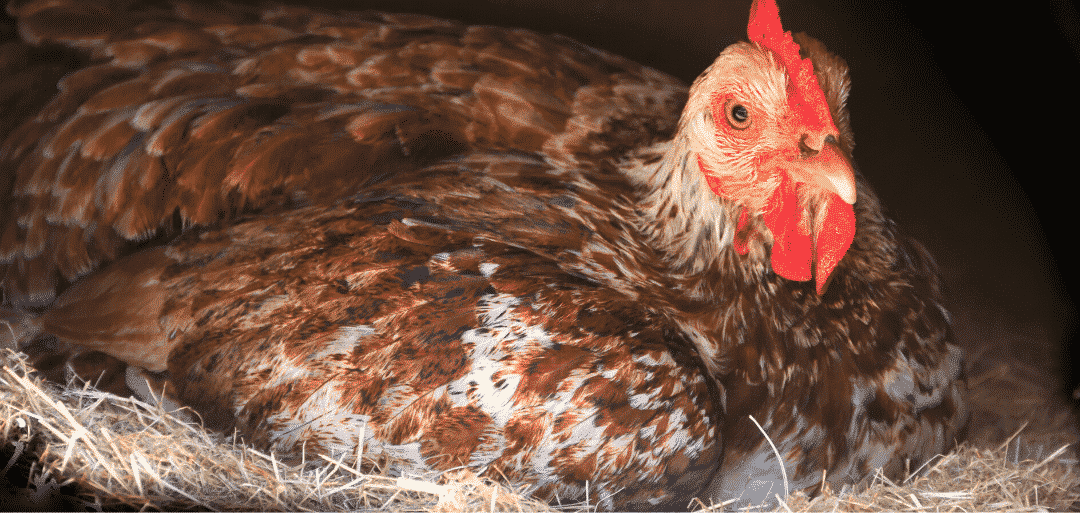
If you’re new to backyard chicken keeping, a broody hens tendency may be an amazing addition to your flock if you are looking to expand your flock with new hatchlings. However, these maternal instincts in a hen may not always be favorable, especially if the eggs she’s laying on aren’t even fertile! If you are new to backyard chicken keeping, there are key identifiers to help spot a hen’s behavior change when her instincts have taken over. A few noteworthy signs of a broody hen may include the following 3 identifiers.
Defensive Reluctance to Move
Once a hen has determined that the collection of eggs in your coops nest box deserve to be hatched, her behavior will radically change. A broody hen will ruffle her feathers, perhaps “hiss”, and even resort to pecking your hand when collecting eggs.
Missing Feathers and Nest Box Accommodations
Finding an occasional feather in your nest box is no surprise, however, when an accumulation of feathers appears along with identifiable bare skin on your hen, do not be alarmed. A hen will remove feathers to transfer more direct body heat to eggs. If you prepare your nest boxes with straw or excelsior nesting then you may notice some accommodation adjustments.
Missed Meal Time or Snacks
Ever notice how your flock gets excited about feeding time? Flock members will oftentimes pick up on their feeding time schedule and follow you with excitement when you appear, even more so when presenting an occasional treat! If a particular hen suddenly and continuously refuses to leave a nest box regardless of being presented with a meal or flock favorite snack, check the nest box!
Stopping a Broody Hen
Now that you may have identified and confirmed whether or not your hen is broody, the next step of action would be one of two decisions. If you have a rooster or two, allowing her to nest for the entire 21 day incubation period may be an option that does no harm. However, if you find yourself in the predicament of a broody hen with no fertile eggs, breaking your hen out of her maternal instinct may require a trial of different methods.
Physically Remove your Broody Hen
Simply grabbing your hen and taking her out of the nest box may not be as simple, especially if she is acting defiant. This choice may require a bit of precaution, we suggest using gloves when doing so.
Closeout the Nest Box
A broody hen exerts a great deal of energy and commitment, even so, that she will rarely leave her nest to hydrate, quickly eat, and relieve herself. If you are quick to notice when she leaves her claimed nest box, we suggest utilizing a solid item such as a small board to block her return.
Eliminate Comfort
Although it may make sense to make your hens nest box comfortable and ideal for laying eggs, too much comfort may be an easier temptation for a broody hen. If you eliminate your hens broody approved set-up, she may have a change in behavior and snap out of her broodiness.
Relocate your Hen
Accommodating your coop to break one hen out of being broody in a flock of non-broody hens may not seem fair. That’s why having a location set aside for your hen may be a more preferred choice. Oftentimes flock owners will use a dog kennel with no nesting and only food and water, (commonly referred to as a “chicken jail”), to separate and discourage a broody hen. Keeping your hen separated from the rest of the flock may seem unreasonable at first, but if you have one nest box, then your broody hen will refuse to allow the rest of your hens to nest comfortably and provide you with eggs. For more information on how to set up a “chicken jail”, follow the tips mentioned here! Broody hen jail may require confinement for up to 21 days, the same amount of time it takes to hatch a nest of eggs.
We hope our tips for identifying and stopping your broody hen help you along your backyard farming journey. If you are new to backyard chicken keeping and have any questions in regards to anything mentioned in our article, reach out to us via call or email! We’re real people and are always happy to help! Support@roostandroot.com
New to backyard chicken keeping? Make sure to visit our blog “5 First Time Backyard Chicken Keeping Tips“.


